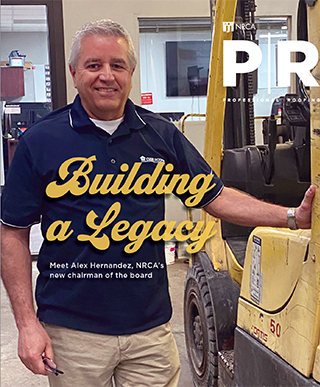Since the Obama administration took office, it has been challenging for the roofing industry to work with the Occupational Safety and Health Administration (OSHA). At NRCA's request, the association's staff and member leaders have met with OSHA several times to address the issues that concern roofing professionals, mainly the agency's revised residential fall-protection standard. But OSHA has not backed away from its positions, including allowing slide guards to be used as an option for fall protection on steep-slope roofs.
However, the discussions have not proved entirely fruitless. On Dec. 11, 2012, four days before OSHA's temporary enforcement measures for residential fall protection were set to expire, the agency extended the expiration date yet again—until March 15. The temporary measures include priority, free on-site compliance assistance; penalty reductions; and extended abatement dates.
"We see this as a positive sign OSHA is willing to continue to discuss the matter and learn why the roofing industry is so concerned that the agency's current one-size-fits-all approach will actually be detrimental to safety," says Tom Shanahan, NRCA's associate executive director of risk management.
The extension merely delays full enforcement, so you still need to comply with the standard and make sure your workers are trained. An updated explanation of the standard and training materials can be found in NRCA's new DVD program "Serving up Safety: A Recipe for Avoiding Falls on the Job."
OSHA also has renewed its effort for an Injury and Illness Prevention Program standard under which employers would be required to identify hazards in their workplaces and find remedies for them regardless of whether OSHA regulates the hazard. NRCA's Health and Safety Committee is supportive of the standard to the extent it believes every roofing company should have a written and enforced safety program; however, NRCA does not believe such programs should be regulated and subjected to hefty OSHA fines for noncompliance.
And finally, watch for a new silica rule. OSHA will attempt to determine permissible exposure limits for silica commonly found in concrete products, such as tiles and pavers—another troubling issue for roofing contractors.
NRCA continues to work with OSHA to try to reduce the burden the agency places on roofing contractors. For more information about NRCA's efforts, contact Shanahan at (800) 323-9545, ext. 7538 or tshanahan@nrca.net.
Ambika Puniani Bailey is editor of Professional Roofing and NRCA's senior director of communications.



